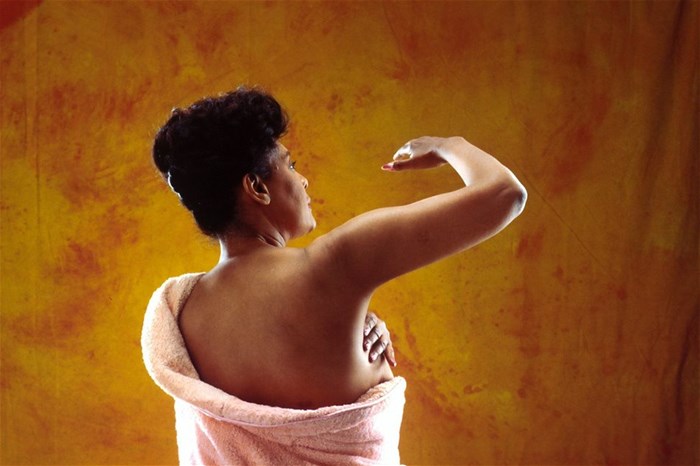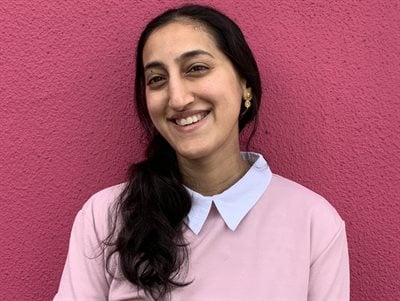
Top stories






More news


Marketing & Media
Ads are coming to AI. Does that really have to be such a bad thing?













While the fierce and ongoing debate around the standard of our public health system continues, the sad reality is that South Africa’s socially deprived are dying from treatable and manageable diseases – including breast cancer.

Why? They are being diagnosed too late, suffer poor access to healthcare services, have to wait too long for treatment or have a lack of knowledge and understanding of their condition and potential for treatment. And, without intervention, this reality will remain constant, if not worsen.
Extensive research worldwide has documented the link between social deprivation and premature cancer death, with multiple reasons put forward for this association. Of further concern are current global trends that indicate an ageing population with a subsequent growing burden of non-communicable diseases, which suggests that, in the coming years, cancer will become increasingly prevalent.
There are many lifestyle factors, however, that also increase the risk of cancer. Whilst many of these can be modified, many are difficult to change when individuals are deprived of the basic foundations for good health. Lifestyle factors are also known to enhance the earlier onset of cancers as well as the mechanisms for more aggressive cancer growth.
For breast cancer specifically, American studies have shown that differences in socio-economic circumstances may also determine differences in exposure to risk factors for different breast cancer subtypes. These include tobacco, radiation exposure, chemicals and other substances, certain hormones, alcohol, poor diet, lack of physical activity or being overweight. Further, in socially deprived populations, access to screening services is also compromised or, in the South African context, simply not available due to its unsustainability.
More effective treatment options are also not accessible.
Finally, the increased burden from chronic lifestyle related diseases such as diabetes, hypertension and HIV limit therapeutic options that can give rise to processes that, in turn, increase resistance of cancers against therapeutic treatments.
Early detection remains a key factor for breast cancer survival. It is vital in the battle against breast cancer. There needs to be an understanding of when it’s important to see a doctor and, very importantly, there needs to be efficient and effective access to healthcare for early cancer detection and treatment. There is a huge need for South Africans to be educated and informed on what to look out for.
If breast cancers are discovered at an asymptomatic stage, before a woman can feel the lump in her breast, most are curable. But this requires a functioning screening programme that covers all women above a certain age. In the developed world, this takes place from the age of 40 (Sweden) to 50 years of age (Australia, Germany and more).
The education of women, however, plays a fundamental role in the efficacy of these screening programmes. A case in point – a European study noted that women living in more socio-economically deprived areas were less likely to attend breast cancer screening; even if screening programmes were available and accessible to all. The reasoning: there were still strong concerns, fears and rumours around breast cancer screening; resulting in fewer women attending said screening programmes.
Some middle-income developing countries such as Mexico, Brazil, Jordan and Jamaica are starting mammographic screening. Even here though, in common with developed countries, it is the socially deprived that are disproportionately not participating or are excluded. Therefore, access to mammographic screening and the ability to treat and cure breast cancer remains a social justice issue, especially in the developing world.
A systematic review by Pruitt et al. examined the association between socio-economic deprivation and breast, cervical and colorectal cancer screening. The work showed that with improved socio-economic circumstances i.e. increased income and education and decreased unemployment and poverty, the chances of patients attending cancer screening increased.
In many developing countries (such as South Africa), mammographic screening is available to the well-off (usually the health insured), but not to the general population. But this is only one aspect. Timeous diagnosis and access to treatment are problematic even if a woman feels a lump in her breast. While patient delays are strongly tied to socio-economic factors (which will only improve with general development of the population), health system delays are also an important factor. This has led to the introduction of guidelines describing targets for the time lapse between first patient presentation to the health system and start of treatment in developed countries.
However, no such targets are set for developing countries, including South Africa. Anecdotal evidence suggests that, in South Africa, the interval is often six months or more – a time interval that prejudices survival. If a woman finds a lump in her breast, it should be relatively easy for her to have it seen to. And, if she is diagnosed with breast cancer, the system should be supportive enough that it becomes possible for her to embark on a proper treatment plan within a reasonable time frame whilst simultaneously arming her with all the information she needs to be empowered to make the right decisions about on-going management and lifestyle.
But even if the patient receives treatment, cancers in deprived women have a more aggressive course for lifestyle associated reasons (primarily smoking, obesity and alcohol abuse - all of which are rife in developing countries). Beyond lifestyle factors, cancers in deprived women also appear to have a more aggressive molecular genetic profile. This means that once the disease is established, certain genes are activated in the tumour, that lead to a more aggressive growth and metastatic spread as well as treatment resistance. This is an ongoing subject of research as why this is the case, is not yet understood.
In addition to the above, a UK study has shown other factors that result in treatment being more effective for longer periods of time in wealthier women, resulting in lower recurrence rates and higher long-term survival. These factors range from the healthcare system itself, to which these women are exposed, and other patient related factors. Wealthier women or educated women tend to be more aware of their symptoms; this then leads to earlier treatment or management of complications. These women are seen in medical facilities where there is better staging and therefore more appropriate treatment or specialised units allowing for improved treatment and better follow up before, during and after diagnosis and treatment.
An additional factor that could influence outcomes potentially lies in the way in which treatment for breast cancer is decided upon (e.g. access to multidisciplinary team meetings), delivered (e.g. access to cancer units), received (e.g. patient comfort) and funded (e.g. access to medical aid or needing to pay out of pocket for treatment) and how individuals from different socio-economic circumstances engage with the healthcare system and the professionals who work within it.
For better and more efficient detection and treatment, we need to look further than just our healthcare system. We need to look at the bigger picture – everything from taking time off work without losing your job to finding the money to get to the treatment centres. It also needs to be noted that socially deprived South Africans’ general health will often be poorer due to things such as poor diet, making patients more susceptible to the side effects of cancer treatment. Ongoing healthcare limitations, of course, remain a factor. Those living on the poverty line often need to prioritise putting food on the table over proper health management.
The tragedy, of course, is that if diagnosis and treatment is not managed properly then the breadwinner is likely to die.
Education and access to information is vital. An American Cancer Society study published in 2010 showed that when compared to women with a college degree, those with only high school level education were 1.39 times more likely to die from breast cancer. Poor education and a lesser socio-economic status are almost always linked.
Healthcare is a mammoth issue and one that is not easy to tackle. However, we can make a difference in smaller ways. Education and awareness, empowerment through knowledge and area-specific programmes to assist with potentially (seemingly) simple problems such as transport funding are a definite move in the right direction.

Dr Justus Apffelstaedt is a former associate professor of surgery and head: surgical oncology service at the University of Stellenbosch. Dr Justus Apffelstaedt earned a medical degree and a doctorate in medicine in Germany, as well as an MMed and FCS(SA) in South Africa and an MBA from Bond University in Australia. He was co-founder of and has represented developing countries on the council of Breast Surgery International (BSI) and is a founding member and first chairperson of the Breast Interest Group of Southern Africa (BIGOSA). He is a fellow and life member of the International Union Against Cancer (UICC) Fellows.
He is excellent at translating complex medical terminology into easily understood language and is a proponent of proactive breast health management through extensive dissemination of information to the general public. His breast service is the only one in Africa to publish peer-reviewed data comparable to international breast practices in breast screening. He is also the author and co-author of several publications in peer-reviewed national and international journals on breast cancer screening and breast health issues.
His current interest and field of practice includes breast health. thyroid, parathyroid and soft tissue tumours.
He has been proudly supporting one of South Africa’s oldest, national non-profit breast cancer support groups, Reach for Recovery, to raise awareness and funds for their Ditto Project since 2018.
He has practices in Cape Town, South Africa and Windhoek in Namibia.
Website: www.apffelstaedt.com

Dr Hoosain graduated with an MBChB from the University of Stellenbosch in 2009, subsequently specialised in General Surgery and qualified with an FCS (SA) and MMed (Surg) in 2019. She has been involved in the publication of several journal articles.
Dr Hoosain is also a member of the Breast Interest Group of South Africa (BIGOSA), the Association of Surgeons of South Africa (ASSA), the Surgical Research Society of South Africa (SRS) and the South African Colorectal Society.